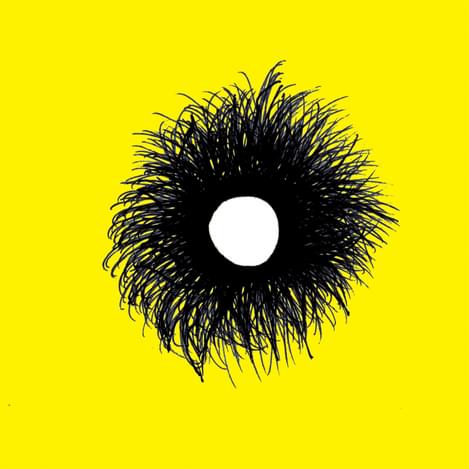Jackson Scott drifts ever farther out on new LP
"Sunshine Redux"

Though its title might have you believe that Sunshine Redux acts as something like a sequel, Scott’s second album (and first for Portland, Oregon’s Bloodmoss Records) diverges subtly from its predecessor even as it stays the course ever outward into uncharted (and cloudier) territories. On many of these ten tracks, the guitars alone provide darker textures than anything heard on Melbourne; seemingly cranked far beyond the manufacturer’s suggested volume, they buzz ominously on the psychedelic sprint-turned-jog of “Broken Record Repeat” and the slacker 60’s pop of lead single “Pacify”. On others, the vocal modulation that successfully toed the line between “eerie” and “exciting” on Scott’s debut becomes out-and-out creepy, putting a sinister spin on songs that have little tethering them to the realm of reality in the first place.
Sunshine is not all fuzzed-out shadows and psychedelic storm clouds, however, and the most memorable songs here feel like outsize callbacks to Scott’s best work. Despite the aforementioned guitar pushing desperately at the levels, “Pacify” is an obvious single, its easily hummable chorus oozing with a mindless charm. “Save The World” pairs warped tape sounds with one of Scott’s more straightforward vocal performances on the album, at least until he croons something about “all the friends you’ll never see”. At this point, his voice is doubled and layered, and the cacophony of his imaginary friends overwhelms the instrumentation beneath it. “PRPLMTV” is drugged-out garage pop about “some kids he used to hang around in college” who, presumably, “took lots of Molly”. Drenched in delay and joined by a children’s choir, he playfully warns against “looking for fun now” in one of Sunshine’s more accessible moments.
The “Ripe For Love” suite that more or less bookends the album is also something of a highlight, albeit for reasons more ideological. Part I faintly recalls the dramatic arpeggios of the Beatles’ “Because” before shifting gears entirely and leading the listener on an acid trip through decades of popular music. Ideas are explored for seconds at a time in the frenzy, as though Scott simply can’t wait to hear what’s next. That urgency, that desire for what’s next seems to lie at the very heart of “Ripe For Love” and Sunshine as a whole—it’s appropriate, then, that “Part II” closes the album.
Unfortunately, Scott’s explorations don’t always come out so concisely, nor so philosophically or musically sound. A “blue note” refers to a musical note played at a slightly different pitch than normal for dramatic purposes. Owen Pallett has taken to calling wrong notes, when purposefully played, “black notes”. In addition to the unusual chord voicings and progressions Scott employs, he utilizes both of these concepts heavily on Sunshine, injecting a sense of tension not readily apparent on Melbourne, at times to great effect. When combined with tape effects and the more grating uses of vocal modulation on this second effort, however, they paint a picture of overripe fruit left bruised on the ground, warping in the sun. In the end, few of the songs here approach the heights promised by his debut. But Scott, still just twenty-two, deserves the time and the encouragement to develop what is very clearly a unique voice. I can’t wait to hear what’s next.
Get the Best Fit take on the week in music direct to your inbox every Friday

Tunde Adebimpe
Thee Black Boltz

Julien Baker & TORRES
Send A Prayer My Way

Bon Iver
SABLE, fABLE





